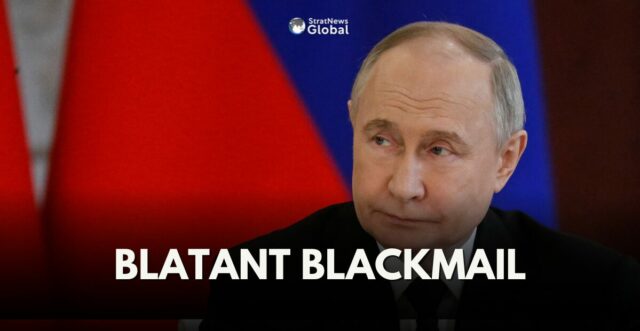On Wednesday, the Kremlin described U.S. Treasury Secretary Janet Yellen’s comments, in which she stated that Washington would not tolerate an increase in China’s exports of “dual-use” goods to Russia and would respond with sanctions, as “blackmail.”
Kremlin spokesman Dmitry Peskov said that Washington’s tone was completely unacceptable and that Moscow stood in solidarity with Beijing.
“We are well aware that our Chinese comrades do not accept such language, do not accept such messages and such threats, such blackmail,” Peskov told reporters.
The United States claims that China is supporting Russia’s war effort in Ukraine by providing dual-use goods, which have both civilian and military applications.
“China is the top supplier of machine tools, microelectronics, nitrocellulose, which is critical to making munitions and rocket propellants, and other dual-use items that Moscow is using to ramp up its defence industrial base,” Secretary of State Antony Blinken said during a visit to Beijing in April.
Yellen said on Tuesday that the U.S. Treasury had seen an increase in Chinese exports of dual-use goods and was very concerned about it.
“I have been extremely clear at the highest levels of the Chinese government that this is something we will not tolerate, and that we intend to sanction this activity,” Yellen said.
Peskov said China’s economic power in the world was such that “even the United States can hardly afford to speak in such a tone. Perhaps not everyone in America’s leadership has understood this at the moment, but over time they will understand it.
“We know for sure that the Chinese do not like this, and we are in solidarity and consider such a tone, such threats inappropriate,” he said.
Russia and China have sharply boosted bilateral trade since the start of the Ukraine war as Russia’s commerce with the West has been decimated by waves of sanctions. Two-way trade hit $240.1 billion in 2023, up 26% from a year earlier.
With Inputs from Reuters
















